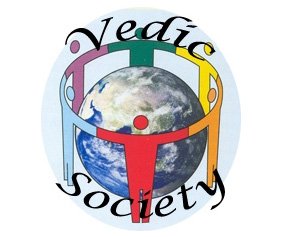Vedic Society
Genesis
The journey of the organization started in the year 1990. Initially it was a movement against the displacement of poor people due to the construction of Auranga Dam that caused submergence of several villages. While the movement was on, the idea of being organized under an official banner came to the mind of the leaders of the movement. The vision behind this idea was to carry forward their social development endeavor into other social sectors to bring in the most desired social change that would be sustainable and holistic. Thus Voluntary Education Development and Integrated Cultural (VEDIC) Society came into existence and in the year 1991 it got registered under the Societies Registration Act, 1860. In the next year its office was established at Ranki Khurd at Palamau district, which shifted to Tumbagara in 1995 and finally to Latehar in 2001.
Mission
To ensure emancipation from all sorts of exploitation and empowerment of people belonging to the tribal and backward communities with special emphasis on children and women through people’s participation and to ensure sustainable & holistic development of the society with justice and equality for all.
Core Values
- Empathy for marginalized people, especially women and children of tribal & backward communities;
- Democracy, pluralism and secularism;
- Commitment towards sustainable holistic development of the society;
- Quality and excellence in service;
Core Objectives
- To ensure equal opportunity of growth for all; irrespective caste, creed, and gender;
- To improve the status of children and women, especially of the tribal and backward communities in respect of their rights and entitlement;
- To create conducive environment for effective and quality basic and primary education;
- To generate community awareness towards health and facilitate the health service providers with quality training inputs for improving overall rural health status;
- To ensure steady progress in generating livelihood opportunities for the people of economically weak section of society by organizing them under CBOs and providing skill development trainings;
- To conserve natural resources and promote efficient management thereon to mitigate environmental degradation and to enhance livelihood opportunities;
- To empower marginalized people & women, esp. of tribal & backward communities by assisting them in leadership development & awareness building for increased participation in rural self governance;
- To collaborate with government departments and other development agencies to make convergence of all development programmes in an integrated manner for sustainable holistic development;
Thematic Areas of Intervention
Basic Education • Community Health • Livelihood – Agriculture and Natural Resource Management • Child Rights and Development • Women Rights and Development • Governance and People’s Participation
Operational Areas
VEDIC Society is presently working in two of the most backward districts of Jharkhand i.e. Latehar and Palamau from its headquarters at Latehar and an extension office at Tumbagara in Palamau area.
Beneficiaries
While emphasizing on “The vulnerables” in the most underdeveloped parts of Jharkhand, VEDIC Society acts as a catalyst and intends to include all deprived & disadvantaged population in its pool of beneficiaries with specific emphasis on the backward classes and especially the tribal people. Thus its population of beneficiaries include the following but not limited to women, adolescents & children at risk, the marginalized and deprived (including farmers and economically backward families)
Resources
In VEDIC Society, the human resources are considered the most valued assets for the organization. It has a dedicated team of around sixty social workers. This team is led by Secretary of the organization. There are also a host of specialists and consultants who provide periodic support to the organization. To spearhead the initiatives, the organization has a very well managed campus of its own at Latehar town. Within this campus, there is an office building along with a training centre with all facilities and amenities for training and accommodation. The office is fully equipped with computers, telephone, fax machine, photocopier machine, generator and other office furniture. A fleet of motor cycles, and two Jeeps are there to ease the job of field staff and to undertake periodic monitoring of work at field level.
Management System
The organization is managed on behalf of the Executive Committee by the Secretary as Chief Functionary. The Executive Committee consists of seven members and headed by the President. This committee is responsible for legal actions and policy making at the apex level. All the decisions are being taken on the basis of general consensus and in accordance with the vision and mission of the organization. The committee also extends its active support to the Secretary in addressing the programmatic and administrative issues. At the operational level, all the planning and decisions are made on the basis of participatory action. The organization has three wings i.e. Programme, Administration and Finance. These wings run in close coordination under the guidance of the Secretary. The programmes / projects are managed by the respective Project Coordinators and there are Accountant and Office Assistant in the Administrative wing. Financial matters are managed jointly by Secretary, Treasurer and the President. Transparency and cooperation are the core essence of the management of the VEDIC Society.
Contact
Registered Office:
Rahkikhurd, Post: Rahkikala,
Via – Satbarwa, District: Palamu,
Jharkhand-822126, India.
Head Office:
At Mako, Post: Latehar,
District: Latehar,
Jharkhand – 829 206, India.
Phone: +91 6565 247350
Cell No.: +91 9431135220
E-mail: vedic350@gmail.com
Website: www.vedicsociety.net.in

